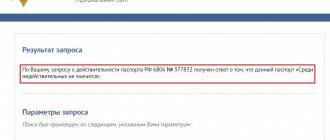Let's talk about the search: both missing persons and criminals. Namely: what kind of search happens, how to correctly register people on the wanted list and when it ends.
In the Russian Federation, on average, about 200 people go missing per day. Several tens of thousands per year. Most of them are found.
The reasons why people disappear are completely different:
- these are elderly people who, due to their age-related diseases, forget where they live;
- these are children who got lost and started playing;
- these are criminals and delinquents, etc.
To find such people, there is a special procedure - search.
Article on the topic: Undertaking not to leave: terms, consequences of violation
What types of search exist in the Russian Federation?
In Russia we have a total of 5 wanted categories:
- The very first and most common is a local search , which is organized in a specific locality of the missing person and its surroundings.
- Regional , covering the region in which the missing person lived.
- Federal search, which covers the territory of our entire country. Announced in relation to especially dangerous criminals and repeat offenders. Including if local and regional ones did not bring any results.
- Interstate - applies to the territory of the CIS countries.
- The international search covers the whole world and is carried out with the help of the Interpol organization.
Useful: What to do if detained by police at a rally
Statutes of limitations on the federal wanted list
If a person has been declared missing, they will search for him until they find him. Reasons for stopping searches may be as follows:
- A person's body was discovered or there was indisputable evidence of his death.
- The citizen was declared dead through the court.
If a criminal has been put on the wanted list, the search will end when the statute of limitations expires. It all depends on the severity of the crime committed. There are the following statutes of limitations in criminal cases:
- For minor crimes – 2 years. We are talking about those criminal acts for which the maximum sentence is less than three years.
- If the attacker committed a crime of medium gravity, then the statute of limitations will be 6 years. We are talking about those acts for which a maximum penalty of 5 years of imprisonment is provided.
- If the criminal's actions caused major damage, he will be wanted for 10 years. The maximum penalty for serious crimes is 10 years in prison.
- For especially serious crimes, the statute of limitations is 15 years. These are criminal acts for which the punishment exceeds 10 years in prison.
The statute of limitations begins from the moment the crime was committed. If the attacker is not found within the allotted period of time, the criminal case is closed. Subsequently, a person cannot be held accountable for a crime for which the statute of limitations has expired. If the attacker deliberately hides from the investigation, the statute of limitations may be suspended. The countdown is restored when a suspect is detected.
In what cases is a citizen declared wanted?
There is a list of reasons why authorities can begin operational search activities:
- in relation to a suspect or accused of committing a crime;
- in relation to a missing person;
- in relation to persons who evade military service;
- in relation to debtors for whom there is enforcement proceedings by the Federal Bailiff Service.
Moreover, Article 65 of the Federal Law “On Enforcement Proceedings” gives the bailiff the right to put a debtor on the wanted list (including the federal one, if local regional ones have not yielded results) for a debt of more than 10,000 rubles.
It is clear that in practice, only those debtors who owe more than half a million are put on the federal wanted list. But nevertheless, the possibility of filing a federal search for a debtor for smaller amounts is also spelled out in the law
Types of searches and who is usually searched for
Fundamentally, there are several types of citizen searches:
- local;
- regional and
- federal.
They are ranked according to the scope of the search area. In the first case, we are talking about searching for a person within the area of residence or city. It is assumed that he did not go far.
Only if you can’t find it locally, a regional search opens. And then federal - on a national or district scale.
In addition, an international search is also highlighted separately - when the crime goes beyond borders, or the criminal managed to leave Russia. In fact, it covers the entire globe, but here everything depends on politics and agreements.
As a rule, a criminal must be of particular interest to the Ministry of Internal Affairs and the FSB in order to be put on the international wanted list through Interpol. These are mainly terrorists, participants in large and high-profile (high-profile) crimes, or political figures.
Other categories include non-payers of alimony, fines under court decisions, etc. They are also looking for military draft dodgers. In general, there can be many reasons.
How to write a missing person report?
As a rule, the department has ready-made samples, since the application form is standardized. It states:
Useful: The police came to the office: actions of the director and employees
- who is missing,
- under what circumstances (when it became known that he stopped answering phone calls, when was last seen);
It is necessary to indicate what the person was wearing.
— possible places where he could be: distant relatives, he went somewhere to some friends’ dacha.
- all contact details.
Provide as much detailed information as possible so that operational staff can quickly check. It often happens that a person just gets drunk. It is clear that the relatives are very worried and are writing a statement. If this application indicates “addresses and appearances,” it will be easier to find this person.
- a photograph of the missing person, as close as possible to the day he disappeared.
Checking an individual using the Ministry of Internal Affairs database online
The Ministry of Internal Affairs database contains information about all citizens of the Russian Federation who are on the wanted list, have a criminal record and have been charged under other charges. Access to the database is limited, but the CheckLic service, officially cooperating with the Russian Ministry of Internal Affairs, can provide data on the criminal records of any citizen using their passport.
To check an individual’s number in the Ministry of Internal Affairs database, you should enter the personal data of the person being checked in the appropriate fields, the system will automatically send an official request for information, after which you will see reliable information about the person being checked.
The information obtained here is updated together with the Ministry of Internal Affairs database, that is, in real time. Therefore, you can be sure that all the data you receive is current at the time you receive the report.
What is included in operational search activities?
This includes a survey of acquaintances, relatives, spouses (including former spouses), an inspection of the missing person’s home, requests to medical institutions, morgues, and work. And what is most important is establishing control over those alleged persons with whom the missing or absconding person (this applies primarily to criminals) may have contact.
Simply put, wiretapping and surveillance.
Orientations are also sent out to: the traffic police, line departments of the transport police, train stations and airports.
Who checks individuals using the Ministry of Internal Affairs database?
Often individuals go through the Ministry of Internal Affairs database when applying for employment, issuing loans, weapons licenses, obtaining visas and other things.
It is impossible to get a job with a criminal record only for certain positions that entail great responsibility, but most organizations do not hire people who previously had a criminal record, even for lower positions.
Usually, the presence of a criminal record must be indicated in the questionnaire, which is usually filled out when concluding any loan agreement or drawing up a resume for employment, but most companies have their own security service, which in any case will check the citizen for his number in the Ministry of Internal Affairs database.
Where can an ordinary citizen find out whether this or that person is wanted?
On the website of the Ministry of Internal Affairs in the “Attention Wanted” section, where you can find out whether a person is wanted by his last name or not. A citizen can also go directly to the police if he is a relative and can prove this with documentary evidence. It’s not enough to come and say that I’m a cousin.
Only the closest relatives can make such a request to the territorial police department or to the bailiff. Relationship will have to be proven. Usually they only answer:
- spouses (current spouses, no former spouses);
- children;
- adopted and natural brothers and sisters;
- grandparents.
Useful: Police ranks
What is a criminal record?
According to Article 86 of the Criminal Code of the Russian Federation, a criminal record is a court sentence that is assigned to a citizen who has committed a crime. After the expiration of the period specified in the sentence, or by decision of the court, the criminal record is removed, but a note about the person’s participation in criminal cases remains in the databases of the Ministry of Internal Affairs.
Having a criminal record negatively affects a person’s future; after it, he remains with the following restrictions:
- You cannot be elected to government bodies;
- No right to work in public service;
- You cannot work in law enforcement agencies;
- It is prohibited to hold responsible positions in organizations;
- You cannot buy or store weapons;
- Travel abroad may be restricted;
- You cannot serve under a contract in the Russian Army;
- You cannot study at some universities and in some specialties;
- Free movement within the country may be restricted.
The Ministry of Internal Affairs database contains accurate information about a person’s criminal record.
ICPO value
The structure of the International Tracing Service includes the General Secretariat. This body is permanent.
The General Secretariat coordinates activities on an international scale and ensures that the database of wanted criminals is updated. This body is also authorized to cancel actions to search for persons due to a violation of the Interpol Charter or insufficient information.
Where will they look for a recruit?
We found out whether the military registration and enlistment office can put a draft dodger on the wanted list, as well as how they search for persons on the criminal wanted list. But where can you find young men who have simply never been served with a summons? Let's look at the most common options:
- Stop by a patrol service to check documents. A fairly common reason, especially if an operation is carried out to train people of military age in order to identify draft dodgers. A suspicious citizen can be taken to the department for identification (few people carry a passport with them?), there they can “break through” the database and see a wanted list from the military registration and enlistment office. Consequences - a summons is served, entailing the need to appear at the military commissariat;
- Visits of the district police officer to the home at the place of registration. But if you don’t live there, then this is not the most formidable option;
- Replacement of passport at 20 years of age. They often require you to present your registration certificate or military ID, although you are required to replace your passport even without them. But is it necessary to mention that if you start “downloading your license,” this will arouse suspicion, and the passport office workers will report such a young man “to the right place”? And when he comes for his passport, as they say, they will already be waiting for him;
- Apparatus employed. The HR department of absolutely any legal entity or individual entrepreneur is obliged to report hired employees to the military registration and enlistment office. And then a summons is sent to the place of employment. Otherwise, the organization/entrepreneur itself will face a fine if they do not report a person of military age who has been hired and do not serve him with a summons;
- Studies. Each university or college has an employee responsible for military registration work and actively cooperating with the military registration and enlistment office. If you had previously received a deferment for your studies, but were expelled, then at your new place of study you will be given a summons and eventually sent to serve without being allowed to complete your studies. In addition, it is widely practiced to present summonses along with a diploma at graduation.
Some people are also interested in the question: if they are put on the wanted list by the military registration and enlistment office, how can they find out about this fact? In fact, this is not advertised and you won’t be able to see your “wanted” status anywhere. But you can actually be 100% sure that they will search, especially if you registered with the military at the age of 16, and you periodically receive summonses at your place of registration.
So, “running” from the military registration and enlistment office until the age of 27 is quite difficult, although it is possible with a strong desire. But it’s better to resolve your issues with the army legally.
Main events
After putting a citizen on the wanted list, the NCB carries out:
- Sending a request to foreign member countries of Interpol (one or more).
- Preparation and submission of applications (YELLOW, BLUE or RED NOTICE) to the General Secretariat of the ICPO.
A request is sent to all Interpol member countries if:
- Operational search work carried out on the territory of states in which the wanted person had connections and he himself could be located did not produce results.
- There is confirmed information about the subject's travel outside Russia, but there is no information about the location or possible connections abroad.
A request for the formation of an international wanted notice is sent to the Secretariat one year after sending a request to put a citizen on the wanted list to all Interpol member countries, if previously taken measures were ineffective.
What laws need to be taken into account?
Article 31 of the Federal Law “On Military Duty and Military Service” provides for the following nuances: if it is not possible to deliver a summons to a person who is a conscript, ensuring the person’s delivery to conscription events is transferred to the appropriate internal affairs authorities. The corresponding written statement of the military commissariat is taken into account as the basis.
Regulations regarding the conscription of citizens of the Russian Federation into military service: if a person does not fulfill military duty, their search and subsequent transfer to the military commissariat is ensured by the internal affairs bodies. In this case, the procedure is established by the current legislation of Russia.
According to Article 21.6, a conscript’s evasion of a military medical commission entails administrative penalties in the amount of 500 to 3,000 rubles.
Services
In addition to the Ministry of Internal Affairs database, you can obtain information about persons on the websites of the Federal Bailiff Service and the State Traffic Safety Inspectorate.
The FSSP website will tell you about whether a person has debts under enforcement documents, as well as about the measures taken by bailiffs, both in relation to the person and in relation to his property.
The traffic police website will allow you to obtain information about a person’s unpaid fines, as well as other administrative penalties imposed against him.
To obtain information about a person’s possible criminal record, you can also use court websites in the “Court Proceedings” section, but it is worth keeping in mind that not all categories of cases are subject to publication on the Internet.
How is the search for recruits carried out?
If a conscript ignores the signed summons, he risks being put on the federal wanted list. A greater possibility of such an outcome is provided by the situation when the signed summons was about dispatch. The risk is also higher if the conscript has repeatedly ignored the obligation to appear at conscription events.
If the military commissariat determines that a conscript regularly and deliberately tried to evade conscription, information about this person will be sent to the investigative committee. Next, officials will familiarize themselves with all the materials about the young man. The conscript must then be summoned to the investigator.
If the actual address of the conscript cannot be established, the registration of a criminal case begins. In this case, police officers are guided by Article 328 of the Criminal Code of the Russian Federation. As soon as the investigative committee entrusts the search for the young man to the specialists of the inquiry authority, the federal search will now deal with the conscript.
Let us note that the military commissariat itself cannot put the young man on the wanted list. Such actions can only be fully carried out by representatives of law enforcement agencies.
All law enforcement organizations are capable of conducting federal searches if they have the appropriate competence. In this case, the conscript may be detained while checking his identity documents. This applies to public places. A young man takes risks even when buying tickets or registering for registration.
During the investigation, if the conscript provides evidence regarding the existence of a valid reason for his failure to appear at the military commissariat, the investigator has every right to suspend or completely terminate the criminal case.
It is indicated that there is no corpus delicti. For example, this could happen if a conscript was unable to go to the military commissariat to undergo conscription activities, if he was ill at that moment or if a close relative died. Please note that in these cases, the conscript’s case will be referred to the court for further proceedings.
Based on the results of the trial, the young man will either be acquitted or found guilty. In the second case, he will be considered a draft dodger. In this case, the conscript will face the following punishments: fines, arrest, compulsory community service, imprisonment for up to 2 years.
In the event that a conscript is detained and taken to the inquiry authority or investigative committee, he will be allowed to use his legal right to a single telephone call. Note: a conscript can call not only a close relative, but also another person. For example, it could be a friend, girlfriend, or colleague.










